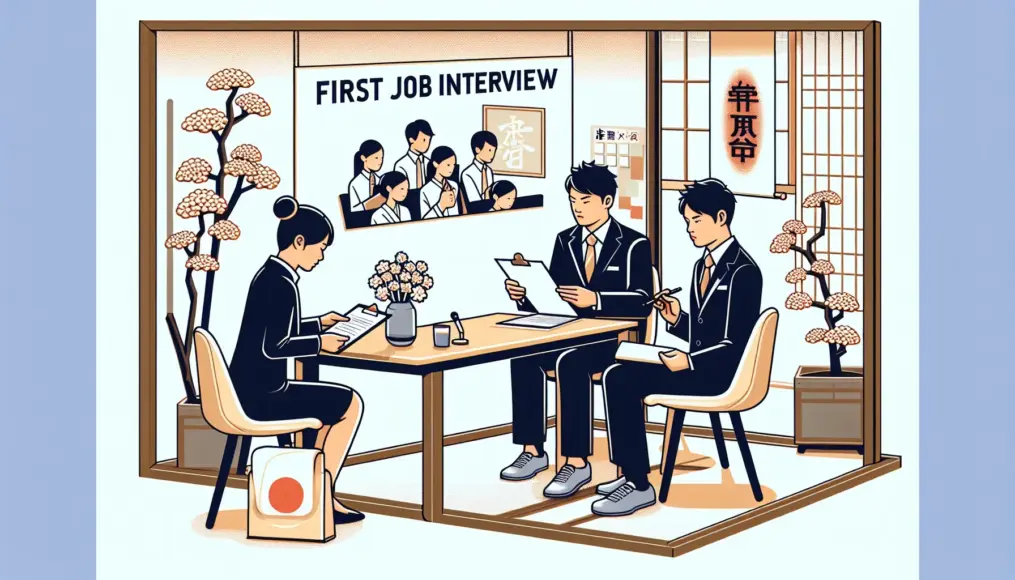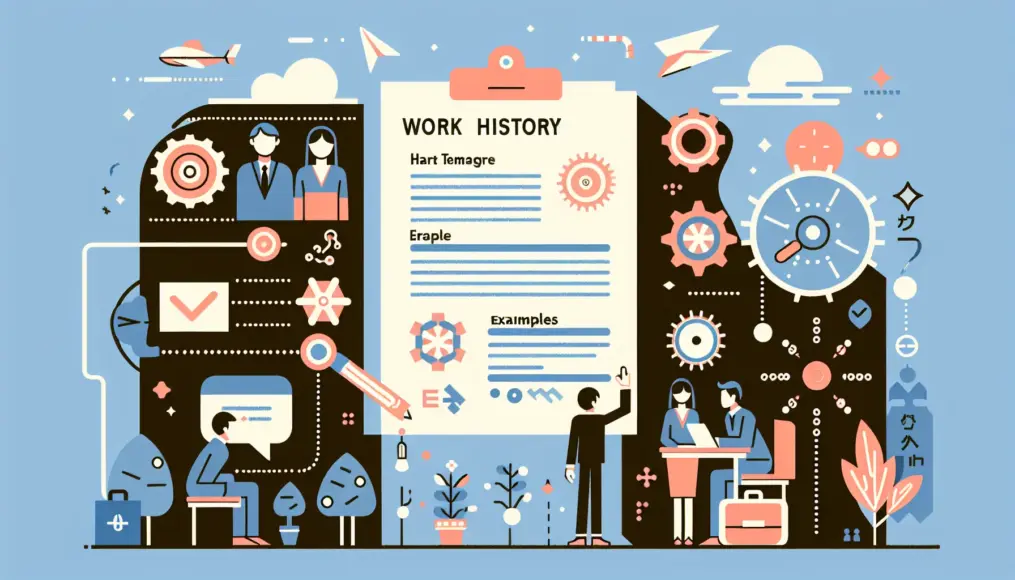The first interview is a crucial step in your job search journey. It’s your chance to grasp what the company is looking for in a candidate while showcasing your own strengths. Engaging in conversation with the interviewer allows you to effectively communicate your skills and experiences, which is key to your success.
In this blog, we’ll cover common questions asked during first interviews and how to craft effective responses. By preparing thoroughly, you’ll be able to approach your interview with confidence. So, let’s dive in and take that first step towards a successful career transition.
- Understanding the purpose of the first interview and the qualities companies seek
- Detailed explanations of common questions and their underlying intentions
- Tips for creating impactful responses
The Importance of the First Interview
In your job search, the first interview is your initial direct interaction with the company. During this meeting, employers not only assess your skills and experience but also evaluate how well you fit into their corporate culture. Therefore, it’s essential to understand the purpose of the first interview and prepare to present yourself effectively.
It’s also crucial to grasp the type of candidate the company is seeking. Employers will use various questions to gauge your suitability for the role. Connecting your strengths and experiences to the company’s needs is key to advancing in the selection process.
Understanding the Purpose of the Interview
The first interview serves several important purposes. Employers focus not only on candidates’ skills and experience but also on their communication abilities and personality. Success in this stage can significantly impact your chances in the later selection process, so thorough preparation is essential.
- The first interview is the initial meeting between the company and the candidate.
- Employers want to assess both the candidate’s skills and personality.
- Understanding the interview’s purpose can help you approach it with confidence.
The Ideal Candidate Profile
The ideal candidate profile varies depending on the industry and company culture. However, qualities like flexibility, teamwork, and problem-solving abilities are often highly valued. By understanding what kind of traits are sought after, you can tailor your presentation to align with those expectations.
- Different companies look for different ideal candidates.
- Flexibility and teamwork are commonly appreciated traits.
- It’s important to connect your own characteristics to the company’s needs.
Common Interview Questions and Their Intentions
During the initial interview, a variety of questions are posed to assess the candidate’s suitability for the role. Among these, inquiries about “self-introduction” and “reasons for changing jobs” serve as critical tools for interviewers to understand applicants better. By preparing thoughtful responses to these questions, you can effectively highlight your strengths.
In this section, we’ll explore common interview questions and their purposes in detail. By crafting specific answers based on your experiences, you can leave a positive impression on your interviewer.
Key Points for Self-Introduction
Self-introductions often take place at the beginning of the interview and are pivotal in shaping the first impression. It’s essential to succinctly summarize your background and skills in a way that captures the interviewer’s interest. For instance, incorporating details about your work history, special skills, and hobbies can help convey your personality and attitude toward work.
- The self-introduction sets the tone for the interview
- Keep it concise and engaging
- Share your personality through your work history and skills
How to Communicate Your Reasons for Changing Jobs
The reasons for changing jobs are among the top concerns for interviewers. It’s crucial to convey positive motivations clearly. For example, expressing that you are “seeking new challenges” or “looking for an environment that fosters growth” can effectively demonstrate your desire for personal development. Avoid negative reasons, and always frame your response from an optimistic perspective.
- Present job change reasons positively
- Highlight your desire for personal growth
- Steer clear of negative motivations
Tips for Crafting Effective Responses
In initial interviews, you’ll often encounter questions designed to assess your skills and personality. To respond effectively to these questions, it’s crucial to prepare thoroughly. Notably, answers grounded in specific examples can be a powerful way to showcase your abilities and experiences. In this section, we’ll explore some concrete tips for crafting effective responses.
One method to pay particular attention to is the “STAR Technique.” By using this approach, you can structure your answers in a way that makes them clear and easy to understand. Additionally, having specific anecdotes ready can leave a lasting impression on your interviewer.
Utilizing the STAR Technique
The STAR Technique involves structuring your responses around four key elements: Situation, Task, Action, and Result. By employing this framework, you can clearly express your experiences in a way that makes sense to the interviewer. Including each of these elements will help you provide specific and impactful answers.
- The STAR Technique consists of four components
- It makes your responses easier to communicate with clear structure
- It allows for concrete expression of your experiences
Prepare Specific Anecdotes
When answering questions in an interview, having specific anecdotes is essential. By preparing stories based on your own experiences, you can help the interviewer gain a clearer understanding of your skills and qualities. It’s beneficial to include not only your successes but also lessons learned from failures. In doing so, it’s important to communicate how you improved as a result.
By utilizing the STAR Technique discussed in this article, you can effectively construct specific anecdotes for your interview. For those looking for more tips to assist with interview preparation, check out this article: “Essential Points to Cover Before Your Job Interview.” Prepare thoroughly before your interview, and set yourself up for success.
- Specific anecdotes enrich your responses
- Use both successes and failures to your advantage
- Show growth by conveying your improvement process
Key Evaluation Points for Interviewers
During the first round of interviews, there are several key factors that interviewers focus on when assessing candidates. Among these, communication skills and problem-solving abilities are particularly crucial for making a strong impression. These skills directly impact teamwork and job performance in the workplace, so interviewers are keen to evaluate them thoroughly. In this section, we’ll delve into the specific evaluation points that interviewers prioritize.
Understanding these evaluation criteria and how to relate them to your own experiences and skills is essential for interview success. Be well-prepared to leave a positive impression on your interviewer.
Communication Skills
Communication skills are one of the most important factors that interviewers look for. They want to see how clearly you can express your thoughts and how well you can listen to others. Using appropriate language, maintaining eye contact, and modulating your voice are also key components. By articulating your ideas effectively, you can create a favorable impression on the interviewer.
- Communication skills are a top priority for interviewers
- Clearly conveying your thoughts is essential
- Appropriate language and body language are also evaluated
Demonstrating Problem-Solving Skills
Problem-solving abilities are critical in the workplace. Interviewers want to understand how you analyze problems and develop solutions. Sharing specific anecdotes that illustrate your approach to problem-solving can be particularly effective. Additionally, showcasing your ability to remain calm and composed under challenging circumstances can significantly enhance your value in the eyes of potential employers.
- Problem-solving skills are vital in a professional setting
- Use specific stories to illustrate your approach
- Highlighting your calm demeanor in difficult situations is beneficial
Conclusion
The first interview is a crucial step in the job-hunting process, where interviewers evaluate a variety of factors. By preparing thoroughly for questions about your self-introduction and reasons for changing jobs, and by incorporating specific anecdotes into your responses, you can effectively showcase your strengths. Additionally, skills like communication and problem-solving are vital in the workplace, so it’s important to highlight these abilities clearly.
Approaching your interview with confidence, backed by solid preparation, can pave the way for success. As you gear up for your upcoming interviews, be sure to keep the points outlined in this article in mind to present yourself in the best light possible.
- A strong self-introduction and clear reasons for changing jobs are key in the first interview
- Use the STAR method to prepare detailed responses
- Highlight your communication and problem-solving skills
Wishing you the best of luck in your interviews! If you have any questions or comments, feel free to reach out.



Comment